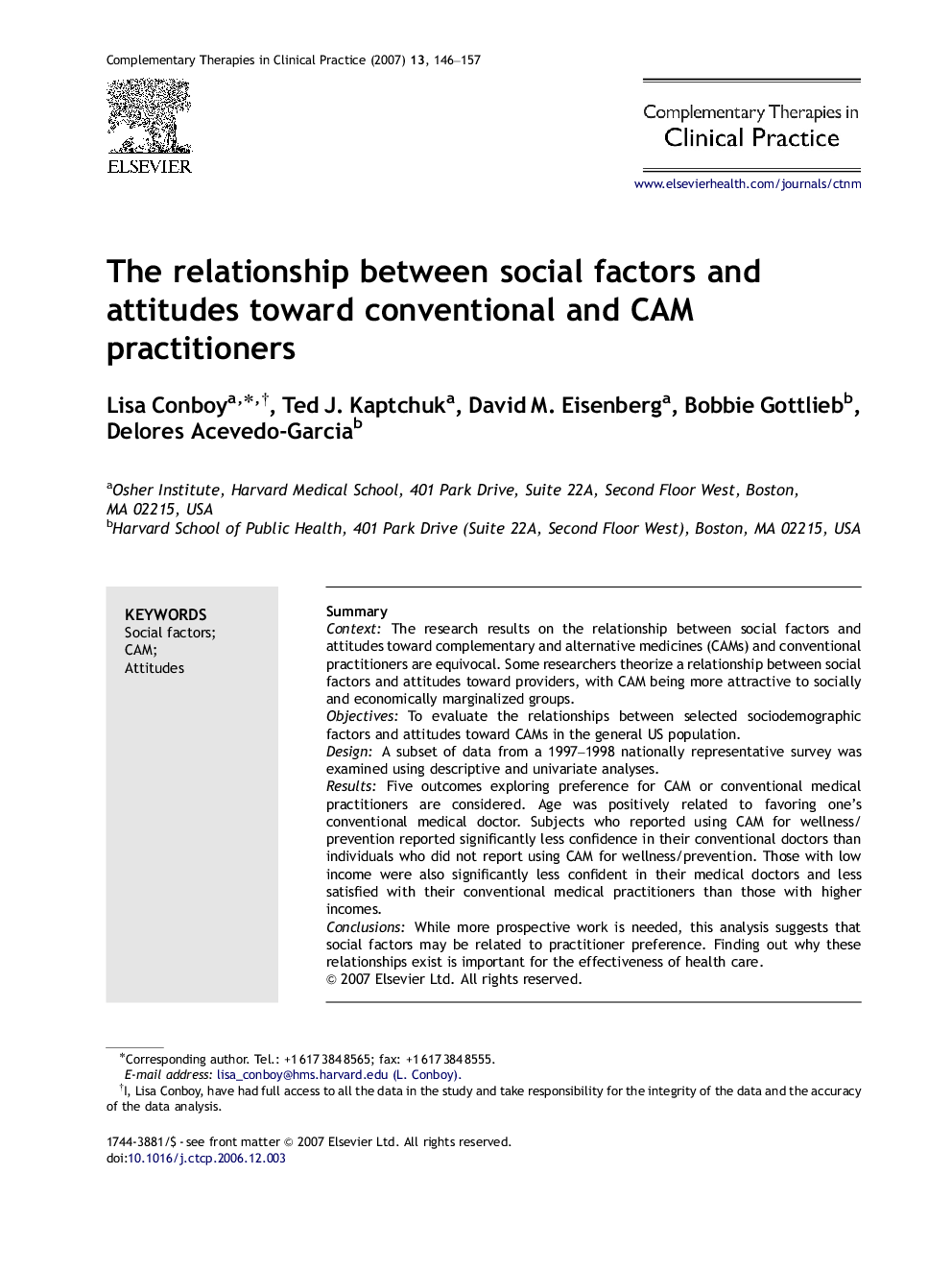| Article ID | Journal | Published Year | Pages | File Type |
|---|---|---|---|---|
| 2629000 | Complementary Therapies in Clinical Practice | 2007 | 12 Pages |
SummaryContextThe research results on the relationship between social factors and attitudes toward complementary and alternative medicines (CAMs) and conventional practitioners are equivocal. Some researchers theorize a relationship between social factors and attitudes toward providers, with CAM being more attractive to socially and economically marginalized groups.ObjectivesTo evaluate the relationships between selected sociodemographic factors and attitudes toward CAMs in the general US population.DesignA subset of data from a 1997–1998 nationally representative survey was examined using descriptive and univariate analyses.ResultsFive outcomes exploring preference for CAM or conventional medical practitioners are considered. Age was positively related to favoring one's conventional medical doctor. Subjects who reported using CAM for wellness/prevention reported significantly less confidence in their conventional doctors than individuals who did not report using CAM for wellness/prevention. Those with low income were also significantly less confident in their medical doctors and less satisfied with their conventional medical practitioners than those with higher incomes.ConclusionsWhile more prospective work is needed, this analysis suggests that social factors may be related to practitioner preference. Finding out why these relationships exist is important for the effectiveness of health care.
